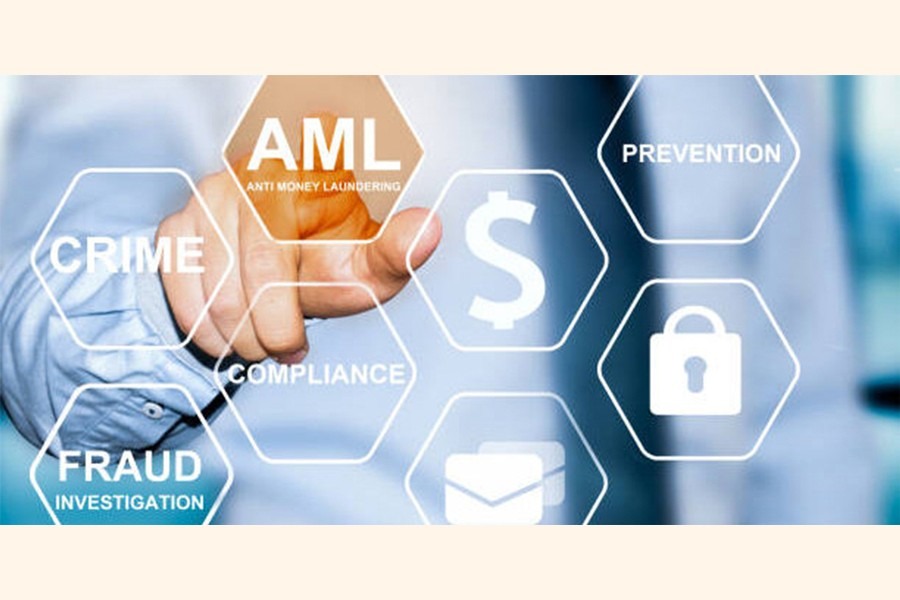
Published :
Updated :

For many years, dirty money has been drained from Bangladesh to various international locations. A businessman from Chattogram, known for taking over multiple banks and channelling substantial amounts as loans, selected Singapore as the sanctuary for his laundered money where he established a billion-dollar business empire. Another corrupt politician, formerly a minister, adopted a more flamboyant approach. He invested his ill-gotten wealth into numerous luxury properties in London, Dubai, and New York. Many government officials, however, reportedly prefer the upscale neighbourhoods of Toronto, Canada, as a safe place to reside with their laundered wealth. The fact that money laundering is a financial crime with potential for prosecution and punishment did little to deter them from engaging in it. According to the White Paper on the state of the economy released last December, approximately $240 billion has been illicitly transferred out of the country in the last 15 years, a practice that depletes national wealth while enriching a select few overseas.
Bangladesh's economy is heavily reliant on export earnings, with the garment sector contributing over 80 per cent of total exports. While exports grew significantly, reaching $55 billion in 2023, the actual figures could have been considerably higher without illicit money transfers. With an average GDP growth of 7.0 per cent, the authorities have so far felt little urgency to address money laundering's impact on exports. However, as the country prepares for LDC graduation in 2026 which will result in the loss of duty-free access to key markets, the economic drain caused by money laundering can no longer be overlooked.
For now, the government is revising export policies to fortify the sector. One major change has been a reduction in cash incentives for exporters. Previously, Bangladesh offered cash assistance ranging from 1.0 per cent to 20 per cent to enhance export competitiveness. However, from January 1 to June 30 this year, the maximum rate was lowered to 15 per cent, with a minimum of 0.5 per cent. This adjustment is part of a gradual phase-out process, because when Bangladesh will become a developing country, under World Trade Organization (WTO) rules it will be required to fully eliminate cash incentives. The WTO considers direct cash subsidies on export receipts trade-distorting, so it prohibits such practices in both developing and developed nations.
Cash subsidies are meant to strengthen export competitiveness, but, as revealed by numerous media reports, they've become a gateway for exploitation. Some companies have taken advantage of this government policy by falsely declaring exports, often with the help of corrupt customs officials and clearing and forwarding (C&F) agents. In many cases, no goods were even shipped, yet fraudulent claims led to the payout of tens of millions of taka. Compounding the challenge are external trade barriers such as anti-dumping measures. For example, India imposed anti-dumping duties on Bangladeshi jute and jute products, which significantly reduced exports to India and effectively nullified any benefits gained from the subsidies.
The long-term sustainability of export growth cannot depend on cash incentives. Businesses must move beyond reliance on subsidies as a crutch and focus on building their own competitiveness. This mindset of pursuing exports at any cost created a high-risk environment that opened avenues for money laundering. As Bangladesh transitions to a post-LDC era, phasing out subsidies must be paired with structural reforms that will prevent illicit financial flows within the export sector.
A significant portion of the illicit financial outflow occurs through trade and business. One common method used is mis-invoicing-undervaluation of exports and overvaluation of imports. Such exploitation of loopholes in the banking sector's export-import mechanisms has allowed financial fraud to flourish on a massive scale.
The back-to-back Letter of Credit (LC) system, widely used in the garment industry, is a prime target for money launderers. Under the system, raw material imports are financed against export orders. While regulations are in place to ensure import costs do not exceed export revenue. But these rules are often flouted. The Bangladesh Financial Intelligence Unit (BFIU) has uncovered such a case at Premier Bank's Narayanganj branch where 18 entities were provided with excessive unauthorised back-to-back LC facilities far beyond the allowable limit. This scheme facilitated the siphoning off Tk 6.21 billion through fraudulent transactions.
Even when staying within the regulatory limit, back-to-back LC transactions can still be susceptible to manipulation for money laundering. A key vulnerability lies in the proforma invoice-a preliminary bill of sale detailing goods or services, including their description, quantity, price, delivery, and payment terms. Banks are tasked with reviewing these invoices to ensure they align with master LCs, verify supplier credibility, and assess the reasonableness of pricing. However, the absence of a standardised price leaves banks without a reliable benchmark to cross-check invoice values.
In practice, bank employees often resort to informal methods to verify pricing, such as conducting Google searches. This approach is unreliable and ineffective. Consequently, banks struggle to detect over-invoicing and other fraudulent pricing tactics used in trade-based money laundering.
To tackle this issue, the Bangladesh Bank should create and maintain a comprehensive, regularly updated price list of all exported and imported goods. This list should account for market fluctuations, product quality, brand, model, and economies of scale. Making this database accessible to all banks online would enable them to quickly identify discrepancies between LC prices and official prices and help block suspicious transactions. To ensure accountability, punitive measures should be enforced against banks that neglect these checks despite access to the data.
A price list is not a cure-all, but it is a practical step towards securing the export sector's future.
By reducing illicit financial outflows and mis-invoicing, it could redirect billions of dollars from fraudulent trade into legitimate export revenue, boosting foreign exchange reserves and the economy.
shoeb434@gmail.com


 For all latest news, follow The Financial Express Google News channel.
For all latest news, follow The Financial Express Google News channel.